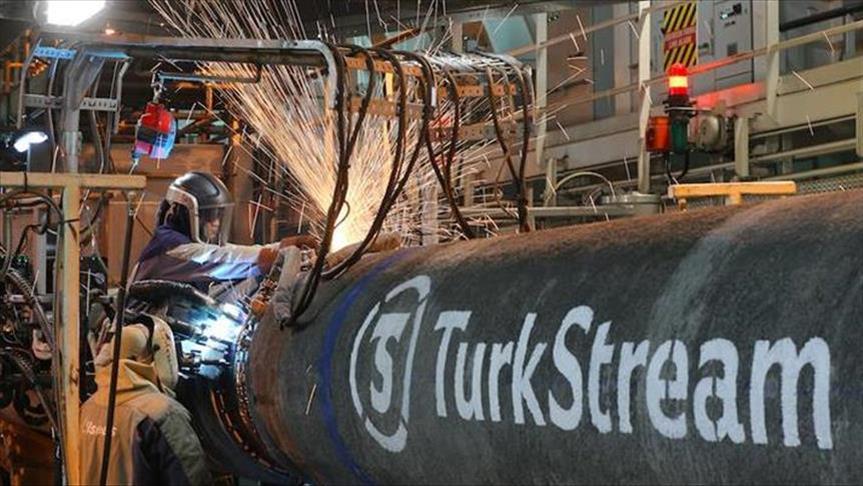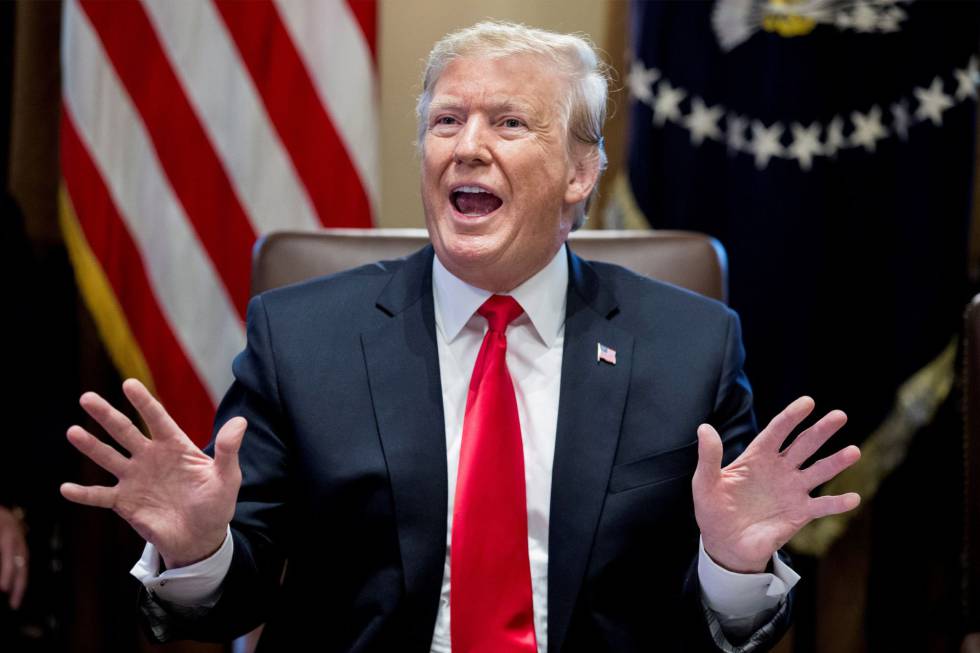
Trump Concocted the Biggest Deal on the Planet
Donald Trump withdrawing U.S. troops from Syria? This is only a small part of the huge deal which also deeply affects Bulgaria. But first, let us consider for a moment why President Barack Obama was awarded the Nobel Peace Prize, and Trump wasn't. It should have been the other way around! President Obama destroyed two to three countries and attacked a total of nine countries with drones. Trump hasn't commenced a single war, he made peace on the Korean Peninsula, and during the Christmas holidays, he vowed to withdraw 2,000 troops from Syria. He is simply the Santa Clause of peace!
At first glance, the Christmas present is for Turkey. As we know, Turkey captured the city of Afrin in Western Syria and the area around it in the spring, banished about 160,000 Kurds from the region, and began to resettle Arabs and refugees from Southern Syria. Furthermore, Turkey is also planning to capture the city of Manbij on the eastern coast of the Euphrates River, and from there, continue toward the Kurdish territories to the east. Until now, only U.S. military instructors and advisers have been hindering this effort, but after they leave, Turkey gets the green light! And this is where most of Syria's oil fields are.
Why is Trump making such a gift? Perhaps it is because he is getting something in return. Perhaps he expects Recip Tayyip Erdogan to withdraw from the TurkStream gas pipeline project, or at least from where it branches into Eastern Europe. On Nov. 24, Israel, Cyprus, Greece and Italy signed onto the Eastern Mediterranean gas pipeline project, which would start from the offshore gas fields near Israel and Cyprus and bring gas to Greece, and hence, to Italy. There are plans for the pipeline to reroute to Bulgaria, Romania, Serbia, Hungary and so on.
The pipeline will be over 2,000 kilometers long (approximately 1,243 miles) and so far, is expected to involve a $7 billion investment. But it is well known that Turkey does not permit development of its oil fields near Cyprus, and has even threatened military intervention should development occur. So, could this now be part of the deal concerning the withdrawal of U.S soldiers from Syrian Kurdistan? If this is the case, Bulgaria is about to switch to another gas pipeline.
We can see Theodore Roosevelt’s old carrot and stick policy in action. The stick – this means the sanctions with which Trump is building a wall around Russia. In August, the United States imposed additional sanctions against Gazprom and its contractors building Nord Stream 2. On Nov. 13, Gordon Sondland, the United States ambassador to the European Union, sent an official warning to the European Union. As to the question of whether Trump will take further measures, Sondland replied, "We have not deployed the full set of tools yet that could significantly undermine if not outright stop the project. We’re hoping that the opposition to the project works organically, because the EU and its member countries agree that dependence on Russian energy is not a good long-term geopolitical decision.
If that philosophy is not adopted and Nord Stream continues, then the president has many, many other tools at his disposal to stop the project..."
On the very next day, Hungarian Prime Minister Viktor Orban met with U.S Energy Secretary Rick Perry. Perry warned Hungary and its neighboring countries as well to abandon the planned connections with the TurkStream pipeline. “Russia is using a pipeline project, Nord Stream 2, and the multiline Turkish stream [TurkStream project] to try to solidify its control over the security and the stability of Central and Eastern Europe," Perry said.
At the same time, Bulgaria is very concerned about another topic. On Nov. 22, the Russian newspaper Kommersant reported that a branch of the TurkStream pipeline will pass through Bulgaria, Serbia, Hungary and Slovakia. The same day, Bulgarian Energy Minister Temenushka Petkova denied knowledge about the Kommersant report. But merely one week later on Nov. 30, Petkova was aware that the TurkStream pipeline would indeed pass through Bulgaria to cover the same route of the terminated South Stream pipeline project. And, who knows why, at the same time there was a rumor that Brussels had insisted Bulgaria privatize its national gas pipeline network, which the Bulgarian Prime Minister resolutely rejected. Brussels denied this report and there was no further information. But where there is smoke there is fire. Someone has demanded something.
Readers will recall that in 2014, the South Stream pipeline was halted after Sen. John McCain’s visit during Plamen Oresharski's administration. The recent meeting took place at a higher level. In mid-December, U.S. Deputy Secretary of State John Sullivan visited Bulgaria for two days, met with President Rumen Radev, Prime Minister Boyko Borisov and the foreign affairs and defense ministers. Afterward, U.S. Secretary of State Mike Pompeo personally spoke with Boyko Borisov on the phone to reassert his impressions, and the media sounded an alarm, sensing something was occurring behind the scenes with F-16 fighter jets. But the main purpose of Sullivan's tour was evidently the reshuffling of the gas pipelines. Not a single word was said about this. We Bulgarians know how to keep a secret.
However, it is enough for someone who connects the events over the last two months to see that the picture is clear at a glance. Previously, in September, the U.S. Congress halted delivery of new fifth generation F-35 aircraft to Turkey. The reason was that Turkey purchased a Russian Zenit S-400 missile complex. On Dec. 25, Erdogan received a Christmas gift: Turkish pilots began training for the F-35, and it is clear that there will be a deal. So, can Turkey be giving up the Russian S-400? We will learn if that is true in 2019.
There is another joker involved. In mid-November, The Washington Post reported that Trump is planning to extradite to Turkey the religious leader Fethullah Gulen, whom Erdogan accuses of involvement in the 2016 coup. Trump categorically denied this in November. But, on Dec. 16 in Doha, Turkish Foreign Minister Mevlut Cavusoglu boasted that during their meeting in Argentina, Trump assured Erdogan that this issue is currently being dealt with. Gulen, also referred to as the "Turkish Soros," is apparently a very valuable asset for U.S. intelligence. But after his network in Turkey was utterly defeated, he is hardly as valuable. It will not be pleasant, but if this is the price of bringing some sense to Turkey, why not?
Much more precious victims are the Syrian Kurds, who expected to get their Kurdistan. But the stakes are much higher than the Kurds themselves. Turkey is gravitating dangerously toward Russia and has set already one foot outside NATO. It is almost certain that the United States will remain without its Incirlik Air Base, where it holds its nuclear weapons. If the scandal with Turkey continues in the same spirit, in the next five to 10 years, a unified block of powerful countries will emerge to compete with the likes of the United States, Turkey, Russia, China and Iran. The gravity of this block will be so powerful that it may attract India, Japan and Pakistan. And why not Europe itself? If Europe is also left to connect through the new gas pipelines, it will fall under the influence of Russia and China.
During President Obama’s presidency, the U.S. tried to talk sense into Erdogan, using the stick. Nothing happened. Now Trump is pulling out the carrot. And as a prominent master of business negotiations, he has hatched a so-called package deal with Turkey that says we are giving you a piece of Syria along with your favorite Kurds and oil. Only try and reach an agreement with Russia and Iran.


